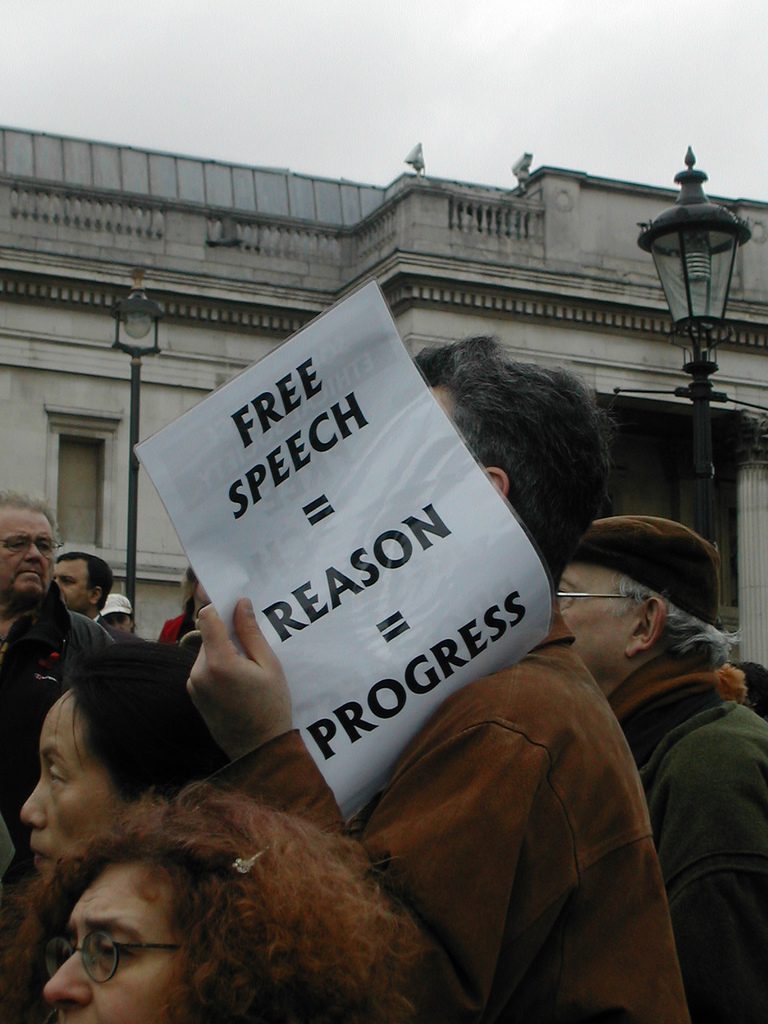
What’s a university education for? I had my own answer for it when I was getting mine, namely that it was an opportunity to dip into as much of human knowledge as aroused my curiosity in whatever sequence I chose. I don’t necessarily recommend this to others, but I don’t think that it was the worst approach to learning either, at least on an undergraduate level. Of course, those were halcyon days, where I could get a public university education for essentially the price of carfare. Tuition was free, and my New York State Regents scholarship covered books and incidental expenses. I took a course in the philosophy of Plato, and another in sculpture, and another in Beethoven’s string quartets — all sixteen of which were performed in class by a faculty quartet.
I finally wound up majoring in history and as a graduate student took no courses but in my chosen discipline, earned the requisite degrees and had my career — the rest was, indeed, history. But I never regretted my undergraduate wanderings, and I think they made me a better historian, as well as eventually a couple of other things as well. Such freedom scarcely exists today.
Higher education is so costly that it is, first and foremost, an investment to be recouped. This fast-tracks most students into career professions before many of them have any real idea of how they want to spend their working lives, and is no guarantee in any case of success or even stable employment: jobs these days are at the mercy of mergers, technological obsolescence or simply the bottom line, no matter how good and productive you may be.
The real loss in education designed around the hope of profit, however, is not only the stifling of intellectual curiosity, but the closing down of social possibility. Students forced to fit themselves into whatever job market presents itself at a given moment can’t afford the luxury of critiquing the world around them; they are compelled to adapt themselves to it, even though the market they aim at may change in a blink and leave them high and dry.
Ever wonder why no one reads Karl Marx anymore? Well, what’s to be gained from a blistering takedown of a world you have to live in and have no hope of changing? It’s wasted time, wasted energy and maybe a pink slip to boot. On the other hand, ambitious folk with a talent for toadyism can make a handsome living singing the praises of a system that is rapidly bringing the world to the brink of demographic and ecological disaster.
There was, formerly, a place where one could still engage in lively debate about what constituted the good society — that is, a world worth living in and, if need be, fighting for. That, for all its faults, was academia.
Yes, the university certainly served the interests of corporate capitalism and the imperial state. But in its interstices it still had room for an ideal of free discussion, albeit one more honored in the breach than the observance. In the words of a recent University of Chicago statement, it was a place where speech could be surprising, outrageous and offensive, but still entitled to a hearing.
Which brings us to the case of George Ciccariello-Maher.
Last month, I expressed the hope in these pages that Professor Ciccariello-Maher would once again soon be in front of a classroom at Drexel University, as his students quite clearly wished him to be. That will not happen. Declaring that his position at Drexel was no longer “sustainable,” Ciccariello-Maher has submitted his resignation.
Now, I am one of those who found some of Ciccariello-Maher’s opinions, or at least the manner in which he expressed them, outrageous and offensive. But that was within the University of Chicago’s limits, and mine as well.
Ciccariello-Maher was an accomplished scholar, with graduate degrees from University of California, Berkeley, and books from Duke University Press and elsewhere. He was also, from the testimony of his students, an inspiring teacher. His colleagues at Drexel made him a full professor in his 30s. As a public intellectual, a political activist and an American citizen, he had every right to express his views, judiciously or not. And no one was entitled to respond to them with threats of violence or even death.
What did Ciccariello-Maher mean by stating that his position at Drexel had become unsustainable? I think no person living up to his contractual obligations in a conscientious, not to say exemplary fashion should lose his job because of extramural views. Obviously, this happens all the time in the corporate world.
Academia needs to be different if it is to justify its considerable social privileges, including the institution of tenure.
As Ciccariello-Maher put it, “Tenured faculty need to defend the rights of all faculty” — that is, those exposed to arbitrary dismissal for saying something controversial or simply provoking the ire of anonymous thugs.
Quite pointedly, he was stating the obvious about his colleagues at Drexel: that not only had they failed to stand up for those lacking the protection of tenure, but even to defend the rights of their own.
Ben Franklin still says it best: “Those who would give up essential Liberty to purchase a little Safety, deserve neither Liberty nor Safety.” When tenure, and academic freedom, are buried for good, it would make an appropriate epitaph for its gravestone.

